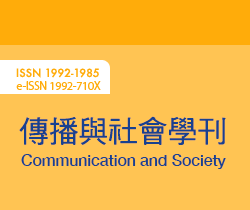 |
| October 2024 |
 |
70 |
|
| 傳播論壇Communication Forum |
| 傳播研究範式的變更:媒介學的興起 |
| Paradigm Shift in Communication Research: The Rise of Mediology |
|
|
|
 |
 (9062)
(9062)
|
| 作者 |
黃旦 |
| Author |
Dan HUANG |
| 關鍵詞 |
研究範式、媒介、媒介學、媒介化、媒介複雜性 |
| Keywords |
research paradigm, media, mediology, mediatization, media complexity |
| 摘要 |
「媒介轉向」已是人文社科研究的一種普遍趨勢。針對國內的研究狀況,本文將之命名為「媒介學研究」而不是「媒介研究」。媒介研究是將媒介作為一個對象,是關於媒介的研究;媒介學研究是將媒介作為起點,是從「媒介」出發的研究。媒介是構成人類和社會的要素和條件,是媒介學的基本構想;人與媒介的互嵌互為,是媒介學的預設框架;以「媒介」為入射角,揭示人和社會的歷史和現實狀況、關係構成的樣態及其演變,為媒介學研究的目的。作為一種新的研究範式,媒介學研究目前面臨的主要挑戰,不僅在於思想知識的重新學習和組織,更在於思維的根本改變和重整。 |
| Abstract |
The “media turn” has become a general trend in the humanities and social sciences. Based on the research status quo in China, this study calls it “mediology studies” instead of “media studies.” Media studies treat media as an object and encompass studies about the media. In contrast, mediology studies take media as a conceptual starting point for research. Mediology assumes that the media are key elements and fundamental conditions for the existence of humanity and society. It is mediology’s default framework that humanity and the media mutually shape and deeply influence each other. The goal of mediology is to explain the historical and present conditions of humanity and society, the nature of their relationships, and their dynamics from a media perspective. As a new research paradigm, mediology faces the challenge of relearning and reorganizing established knowledge and thoughts. More importantly, it requires a fundamental change and reconfiguration of ways of thinking.
本文引用格式:
黃旦(2024)。〈傳播範式的變更:媒介學的興起〉。《傳播與社會學刊》,第70期,頁153–184。
Citation of this article:
Huang, D. (2024). Paradigm shift in communication research: The rise of mediology. Communication and Society, 70, 153–184. |
|
|
 |
| No.74 2025 October |
 |
| No.73 2025 July |
 |
| No.72 2025 April |
 |
| No.71 2025 January |
 |
| No.70 2024 October |
|
